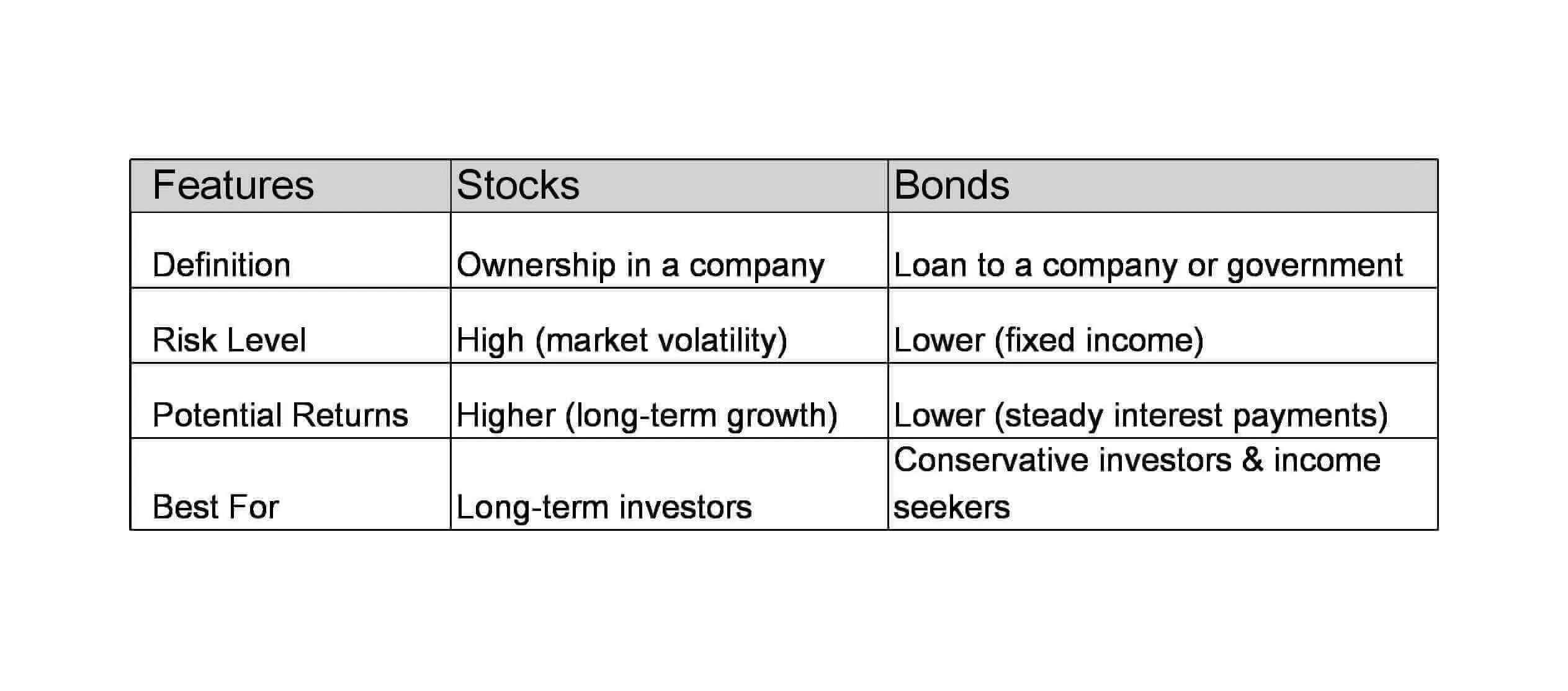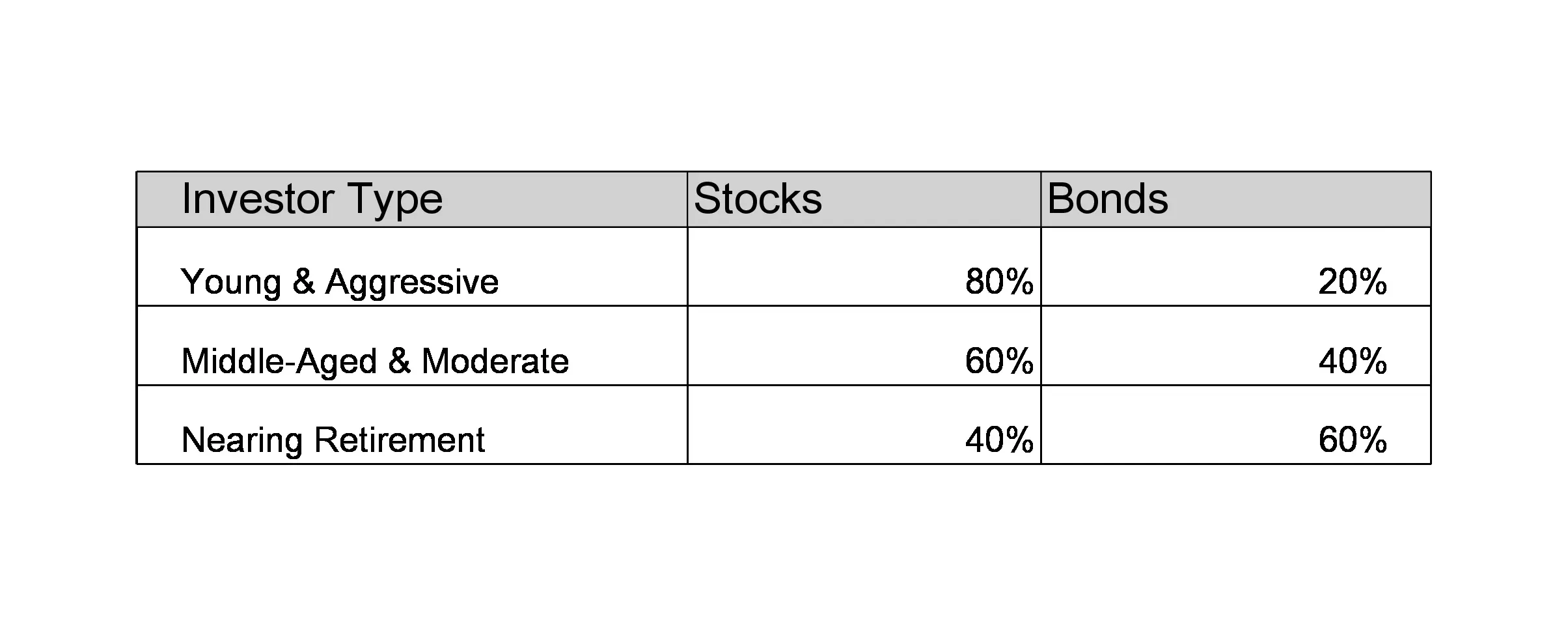Should You Invest in Stocks or Bonds? Here’s What You Need to Know
If you’ve ever thought about growing your money beyond a savings account, you’ve likely come across stocks and bonds. But which one is right for you? Should you take the high-reward path of stocks or the steady road of bonds?
Understanding stocks vs bonds is essential for making smart investment decisions.
This guide breaks down the differences, risks, and rewards of each so you can decide where to put your money.

What Are Stocks and Bonds?

Stocks: Owning a Piece of a Company
When you buy a stock, you own a share of a company. If the company grows, so does your investment. However, if it struggles, your money can shrink too.
Pros:
- High Growth Potential – Over time, stocks have outperformed bonds in returns.
- Dividends – Some stocks pay shareholders regular income.
- Liquidity – Stocks can be easily bought and sold.
Cons:
- Volatility – Prices can fluctuate dramatically.
- No Guaranteed Returns – A stock’s value depends on market performance.

Bonds: Lending for Fixed Returns
Bonds are essentially loans. You lend money to a company or government, and in return, you get paid interest over time.
Pros:
- Stable Income – Regular interest payments make bonds predictable.
- Lower Risk – Less volatile than stocks.
- Diversification – A good way to balance a stock-heavy portfolio.
Cons:
- Lower Returns – Bonds typically earn less than stocks over time.
- Inflation Risk – Fixed interest may not keep up with rising costs.
Stocks vs Bonds: Which One Is Right for You?
The best investment depends on your risk tolerance, financial goals, and time horizon.
When to Choose Stocks:
✔️ You have a long-term investment horizon (10+ years).
✔️ You can handle market ups and downs.
✔️ You want high growth potential.
When to Choose Bonds:
✔️ You need steady income.
✔️ You want lower risk and capital preservation.
✔️ You are close to retirement and need stability.
How to Build a Balanced Portfolio
For most investors, a mix of stocks and bonds is ideal. Here’s a common allocation strategy:

This ensures growth potential while protecting against market downturns.
Key Takeaways
- Stocks offer higher returns but come with more risk.
- Bonds provide steady income with lower risk.
- Your investment choice should match your financial goals.
- A mix of both can balance growth and stability.

FAQs
1. Which is better, stocks or bonds?
It depends on your financial goals. Stocks are better for long-term growth, while bonds are better for stability and income.
2. Can I lose money with stocks and bonds?
Yes. Stocks can lose value if the market drops, and bonds can lose value if interest rates rise. However, bonds are generally less risky.
3. How much should I invest in stocks vs bonds?
A general rule is to subtract your age from 100 to determine your stock percentage. For example, if you’re 30, you might invest 70% in stocks and 30% in bonds.
4. Can I invest in both stocks and bonds?
Absolutely! A balanced portfolio with both assets can help manage risk while growing your wealth.
5. Where can I buy stocks and bonds?
You can invest through brokerage accounts like Fidelity, Vanguard, or Robinhood. Bonds can also be purchased through government programs like TreasuryDirect.
Conclusion
Whether you choose stocks, bonds, or a mix of both, the key is to start investing early. Try a small amount today and watch your money grow over time!





